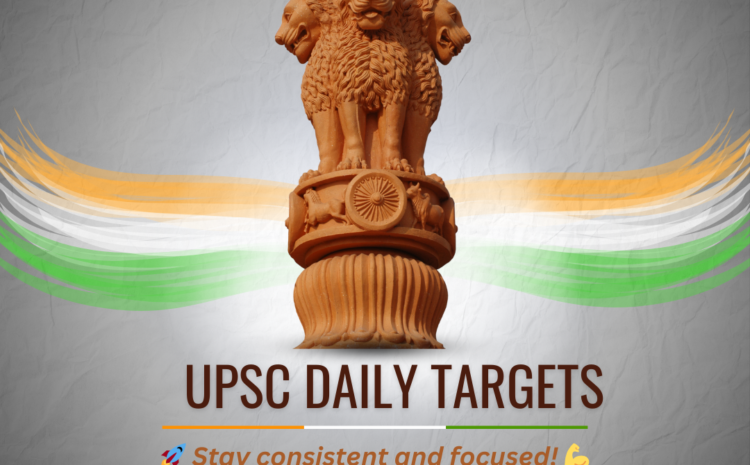📌 Goal for Today ✔ Revise core Economy topics (GDP, Inflation, Banking, Budget, Economic Survey).✔ Solve 25 MCQs to reinforce […]
📌 Goal of the Day: Today, we focus on Science & Technology, covering key topics from Space, Biotechnology, Information Technology […]
📍 Goal for the Day 🕒 Study Plan Breakdown (6 Hours) Time Slot Activity Details 6:00 AM – 6:30 AM […]
On Day 20, you will focus on two crucial topics in Indian Economy: Both these topics are highly important for […]
On Day 19, you will focus on three fundamental concepts of Economy that are crucial for the UPSC Prelims: These […]
✅ Indian Rivers & Drainage System – Important for UPSC Prelims (GS Paper 1), as questions are frequently asked on […]
The most popular job choice for Indian adolescents is the Civil Services Examination, which is administered by the Union Public […]
On Day 17, your focus is on one of the most crucial topics in Environment & Ecology: ✅ Biodiversity & […]
On Day 16, you will focus on two crucial topics from Environment & Ecology: These topics are highly relevant for […]
📌 Topics to Cover: 1️⃣ Basics of Ecology & Biodiversity2️⃣ Levels of Biodiversity3️⃣ Biodiversity Hotspots in India & World4️⃣ Protected […]


